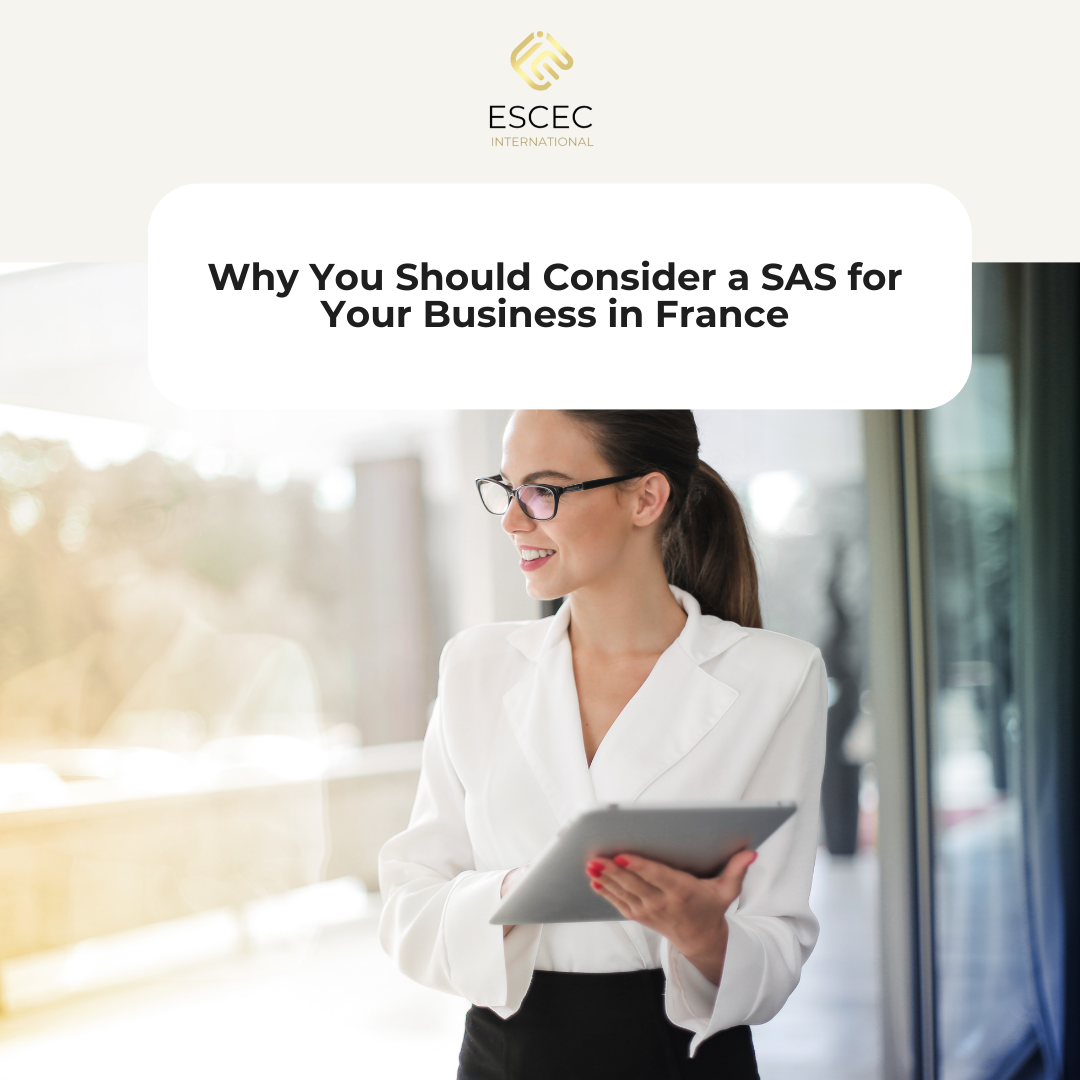Why You Should Consider a SAS for Your Business in France
When starting a business in France, choosing the right legal structure is a critical decision that affects your taxes, liability, and long-term growth potential. Among the various options available, the SAS (Société par Actions Simplifiée) has become increasingly popular for entrepreneurs, startups, and foreign investors. Here’s why.
What is a SAS?
A SAS is a simplified joint-stock company that offers flexibility in management and operation. Unlike other business structures, the SAS allows shareholders to define the rules of governance freely, making it particularly attractive for companies with multiple investors or complex growth plans.
Key Advantages of a SAS
1. Limited Liability Protection
Shareholders in a SAS are only liable for the amount of capital they contribute. This limits personal financial risk and encourages investment, as personal assets are generally protected from business debts.
2. Flexible Management Structure
A SAS can be managed by one or more presidents, and the internal rules can be customized. This flexibility allows entrepreneurs to define roles, responsibilities, and decision-making processes without rigid legal constraints.
3. Attractiveness for Investors
Investors often prefer the SAS due to its adaptability and share structure options. It allows for different types of shares, including preferred shares, which can make funding rounds more straightforward.
4. Simplified Transfer of Shares
Shares in a SAS are generally easier to transfer than in a traditional limited liability company (SARL), providing more liquidity and flexibility for shareholders.
5. Tax Advantages
A SAS can opt for corporate tax (impôt sur les sociétés) or, in certain cases, for personal income tax, depending on the size and objectives of the company. Additionally, it allows the payment of dividends with favorable social contribution rates compared to salaries.
6. No Minimum Capital Requirement
French law allows a SAS to be created with as little as €1 in capital, making it accessible for entrepreneurs with limited initial funds.
Who Should Consider a SAS?
-
Startups and Tech Companies: The flexibility and investor-friendly structure make SAS ideal for high-growth businesses.
-
Foreign Entrepreneurs: Simplified governance and clear liability rules make SAS attractive for international investors.
-
Businesses Seeking Flexibility: Companies that plan to expand, bring in new investors, or implement innovative governance structures benefit from the adaptable SAS framework.
Conclusion
Opting for a SAS when creating a company in France offers a blend of flexibility, limited liability, and investor-friendly features that are hard to match with other structures. Whether you are a startup founder, an investor, or an international entrepreneur, forming a SAS provides a solid foundation for growth, risk management, and future financing opportunities.
By choosing a SAS, you are not just registering a company; you are setting up a business framework that can adapt and grow with your ambitions.

